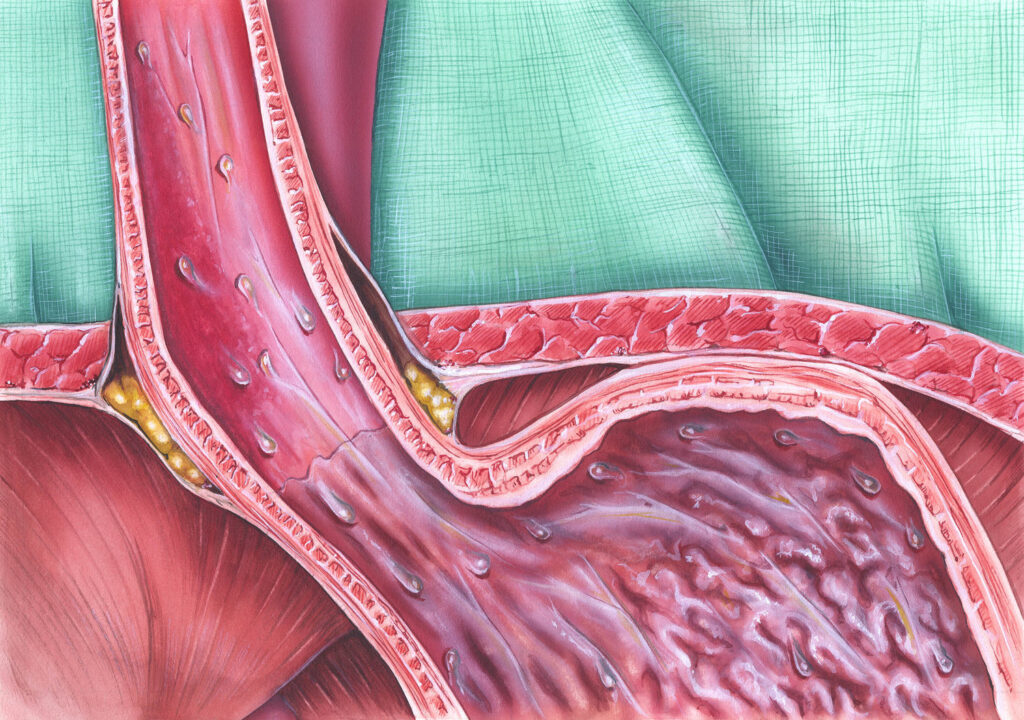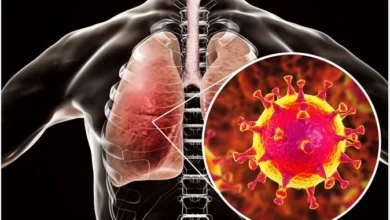Ayurvedic Treatment for Acid Reflux

Acid reflux, medically known as gastroesophageal reflux disease (GERD), is a common digestive disorder that affects millions of people worldwide. It occurs when stomach acid flows back up into the esophagus, causing irritation and discomfort. While occasional acid reflux is normal, frequent or severe symptoms can significantly impact a person’s quality of life. Understanding the causes, symptoms, and treatment options for acid reflux is essential for managing the condition effectively.
Causes of Acid Reflux
Several factors contribute to the development of acid reflux, including:
Weakened Lower Esophageal Sphincter (LES):

The LES is a ring of muscle located at the bottom of the esophagus that acts as a valve to prevent stomach contents from refluxing back into the esophagus. When the LES weakens or relaxes inappropriately, it allows stomach acid to flow backward, leading to acid reflux.
Dietary Factors:

Certain foods and beverages can trigger or exacerbate acid reflux symptoms. Common triggers include spicy foods, citrus fruits, tomatoes, chocolate, caffeine, alcohol, fatty or fried foods, and carbonated beverages.
Obesity:
Excess weight, especially around the abdomen, can increase pressure on the stomach and promote the reflux of stomach acid into the esophagus.
Pregnancy:

Hormonal changes and increased pressure on the abdomen during pregnancy can lead to acid reflux symptoms in expectant mothers.
Smoking:

Smoking weakens the LES and increases stomach acid production, making individuals more susceptible to acid reflux.
Home remedies can be effective for managing mild cases of acid reflux or providing temporary relief from symptoms. However, it’s essential to note that these remedies may not be suitable for everyone, and severe or chronic acid reflux should be evaluated and treated by a healthcare professional. Here are some home remedies that may help alleviate acid reflux symptoms:
- Apple Cider Vinegar (ACV): Despite its acidic nature, some people find relief from acid reflux by consuming diluted apple cider vinegar. Mix one to two tablespoons of ACV in a glass of water and drink it before meals to help balance stomach acid levels.
- Baking Soda: Baking soda acts as a natural antacid, neutralizing stomach acid and providing relief from heartburn. Mix one teaspoon of baking soda in a glass of water and drink it slowly to ease symptoms. However, use this remedy sparingly, as excessive consumption of baking soda can lead to electrolyte imbalances and other health issues.
- Ginger: Ginger has anti-inflammatory properties that can help soothe the digestive tract and alleviate acid reflux symptoms. Drink ginger tea, chew on fresh ginger slices, or take ginger supplements to reduce discomfort.
- Chamomile Tea: Chamomile tea has calming properties that can help relax the muscles of the digestive tract and reduce acid reflux symptoms. Drink chamomile tea before or after meals to promote digestion and alleviate discomfort.
- Licorice Root: Deglycyrrhizinated licorice (DGL) supplements may help relieve acid reflux symptoms by promoting mucus production in the esophagus, which can protect against irritation from stomach acid. Chew DGL tablets or take DGL supplements before meals to prevent symptoms.
- Aloe Vera Juice: Aloe vera has anti-inflammatory properties that can help soothe irritated esophageal tissue and reduce acid reflux symptoms. Drink a small amount of pure aloe vera juice (without added sugar) before meals to help prevent heartburn.
- Elevate Your Head While Sleeping: Use pillows or a wedge-shaped pillow to elevate the head of your bed by 6 to 8 inches. This position can help prevent stomach acid from refluxing into the esophagus while you sleep.
- Avoid Trigger Foods and Beverages: Identify and avoid foods and beverages that trigger your acid reflux symptoms, such as spicy foods, citrus fruits, tomatoes, chocolate, caffeine, alcohol, fatty or fried foods, and carbonated beverages.
- Eat Smaller, More Frequent Meals: Consuming smaller meals throughout the day can prevent overeating and reduce the risk of acid reflux. Avoid eating large meals or heavy snacks close to bedtime.
- Stay Hydrated: Drink plenty of water throughout the day to help dilute stomach acid and prevent dehydration, which can worsen acid reflux symptoms.




